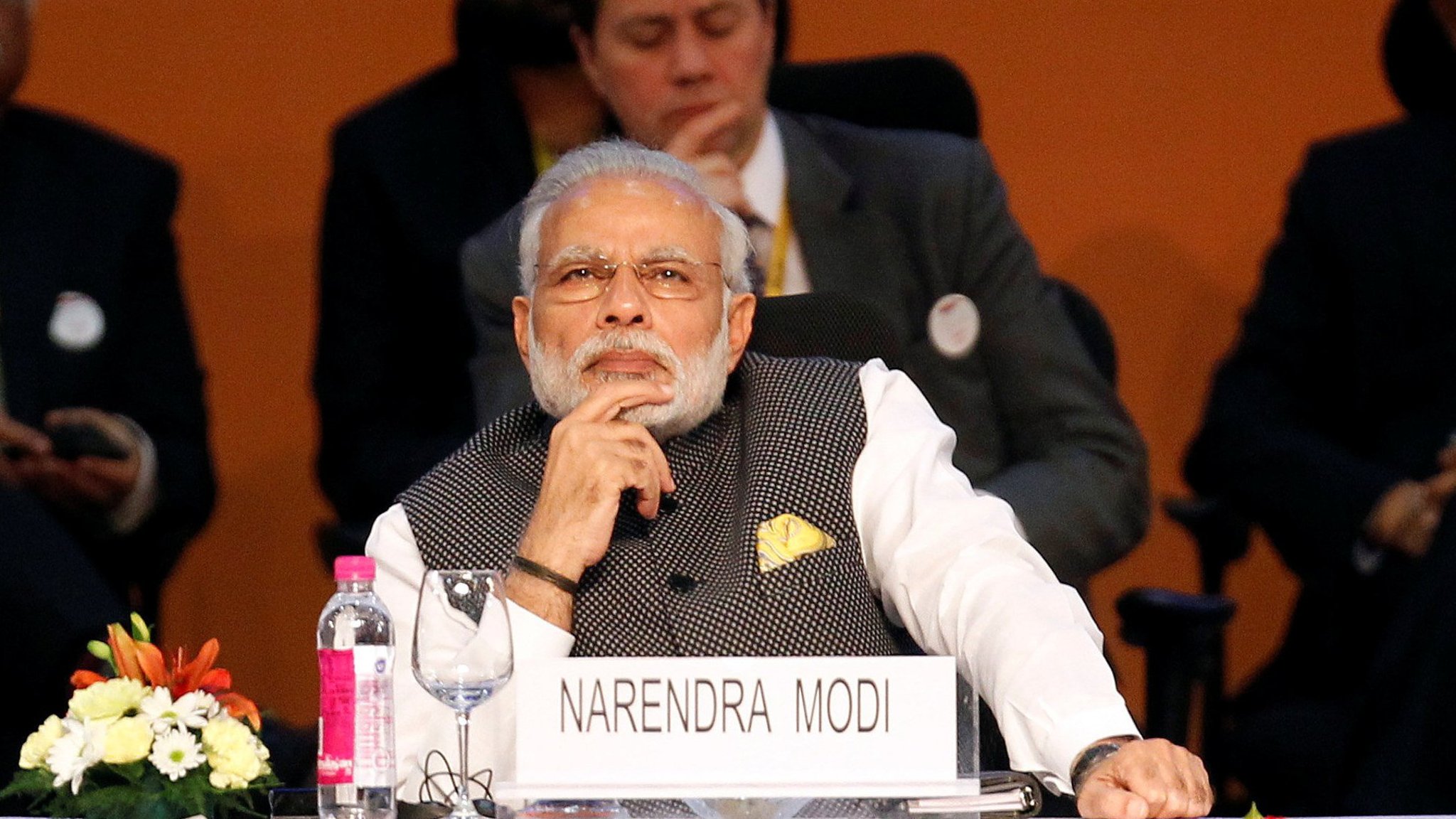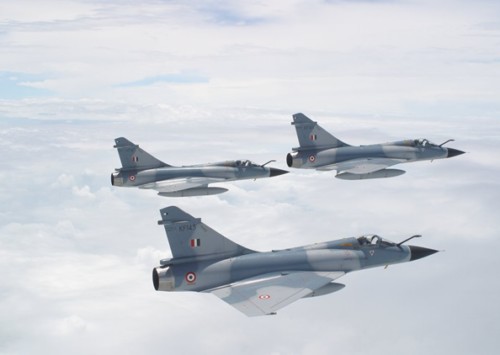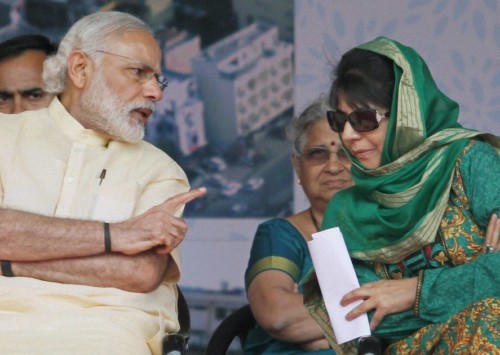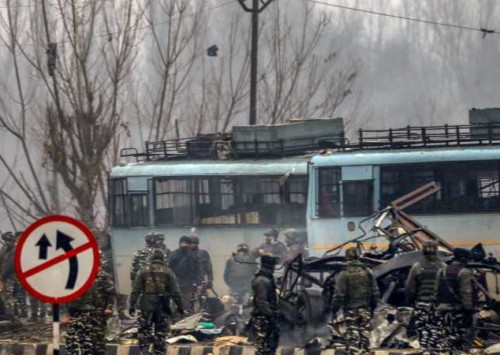India-Pakistan conflict
India should take the mantle of leading the world in creating a global alliance against terrorism.
The world must be wishing that Pakistan closes the terrorist camps that it harbours as quickly as it has agreed to release Indian pilot Wing Commander Abhinandan, who has been in Pakistani Army’s custody for two days, after he landed in Pakistan-Occupied Kashmir when his MiG-21 Bison aircraft was shot down across the line of control.
Without going into the tactical game theory employed in such battles and without indulging in sketching nuclear winter post possible escalation, what is most urgently needed in the global diplomatic arena is a third way strategy. It is not about you win or I win, it is about finding a third way so that everyone wins, that is uprooting the fundamental cause of the terrorism so that peace wins.
Most of the world leaders, including United Nations Secretary Generals, have over the last decade hammered a point that two of the most defining challenges facing humanity in the 21st century are climate change and terrorism. “Climate change is running faster than we are,’’ said Antonio Guterres, the current UN Secretary General. Terrorism is racing ahead even faster than climate change.
India had taken the leadership in efforts to shape the Paris Climate Agreement. The world is now on India’s side in its fight against terrorism. In both cases, PM Modi’s government has carved out the third way strategy and it is working.
Establish an intergovernmental organisation
There are striking exceptions though. US President Donald Trump does not agree on causative elements of climate change, but has shown unflinching agreement on strong, urgent and global action to eradicate terrorism and has been supportive of India’s cross-border military actions in recent days. Chinese President Xi Jinping, who has been working staunchly with India on climate change issues, has however, a wavering stance on terrorism directed against India from Pakistan. As in climate change, there is now need for collaborative and urgent actions and institutionalised approach combined with illustrative and replicable initiatives. Time is running out in both cases.
India should now take the lead, along with President Trump in establishing an intergovernmental organisation, which could be called the International Anti-terrorism Alliance on the pattern of International Solar Alliance that India formed in partnership with France during the Paris climate change summit in December 2015. India is certain to get wide spread support for this common cause. The world knows that the United Nations as an institution gets blocked and is very often unable to initiate concrete and definite action against terrorism due to diverse and often conflicting interests. The global body has not been able to agree on the definition of terrorism. Hence an independent, International Anti-Terrorism Alliance could be the solution that the world has been looking for.
Use digital mechanisms
In a globalised world, imposing trade-sanctions seems to be one way to bring warring parties to the negotiating table. Along with trade sanctions, the objective of the anti-terrorism alliance should be to choke off funding of countries that support or harbour terrorism, directly or indirectly. The alliance can also form an alliance with digital giants like Google, Microsoft and Facebook to track the terrorists and the channels of payments to these groups, by deploying Artificial Intelligence and BlockChain technologies as key tools. We already have good example of using these technologies in tracking the fossil fuel subsidies that are being tracked to identify the gaps in action and promises against the climate change.
India should show stewardship at the global level in deploying what it is already well-known for. Modern satellite technologies developed by the Indian Space Research Organisation to locate terrorist camps, use digital mechanisms like Internet of Things (IoT) to monitor the location and movements of terrorists in precise way and to uproot the terrorists camps without declaring war and without any civilian losses. Even Pakistan has expressed the need to help it locate such camps. A group of countries, including India, should lead such efforts.On the issue of climate change, deforestation and bio-diversity losses are now being tracked around the world by using modern IoT technologies.
Modi government should also use the extra tax collection that been realised following demonetisation, for developing additional capabilities of the Indian defence forces to eliminate terror camps as well as enhancing the quality of life of the defence personnel and upgrading the defence systems and technologies. The Indian population that has always been ready to sacrifice whenever the country has called for or when the nation has been at a war, would again wholeheartedly support Modi if he took such a step.
Iron out differences with China
Finally Modi should invite President Xi for an informal summit in India, reciprocating the move when the Chinese leader had invited the Indian prime minister for Wuhan Summit last year to resolve the long stand-off between Chinese and Indian forces in Doklam on the trilateral border that the two countries share with Bhutan. Indeed, China has not taken very friendly line with India on terrorism, particularly when it involves Pakistan. It has supported the listing of JeM as UN Security Council terrorism sanctions, but not of its leader due to some technical and tactical issues. India should take the lead in asking China to informally iron out the differences.
Modi and Xi have a personal chemistry that could help in addressing terrorism in the same manner as it helped in addressing the climate change. People to people contact between China and India is now much higher after the Wuhan summit. We could expect further improvement after another informal meeting in India.
Finally, using water as a weapon against Pakistan to take action against terrorism may go against innocent civilians. Modi, in 2016, after an earlier attack by the terrorists harboured by Pakistan had famously said that blood and water cannot flow together, as a veiled threat to Pakistan during a bilateral Indus Water Treaty meeting. Like trade sanctions it can help in accelerating negotiations. But to be able to implement its threat, India has to build dams and barrages to be able to use the 6 pc of its share of the water that it does not currently consume. These projects would take several years to be realised and the final impact on Pakistan may be limited. Whatever impact that such a move, were India to carry out its threat, would be felt very largely by the poor and marginal farmer and rural populace of Pakistan, hardly the target group that India intends to send the message to.
India indeed has a toolkit of diverse nature. It should therefore succeed in this third way action against terrorism by deploying these tools in a strategic way. The way it is doing to get Wing Commander Abhinandan’s release.
The author is chairman TERRE Policy Centre, former Director UNEP, an IIT Alumnus.













